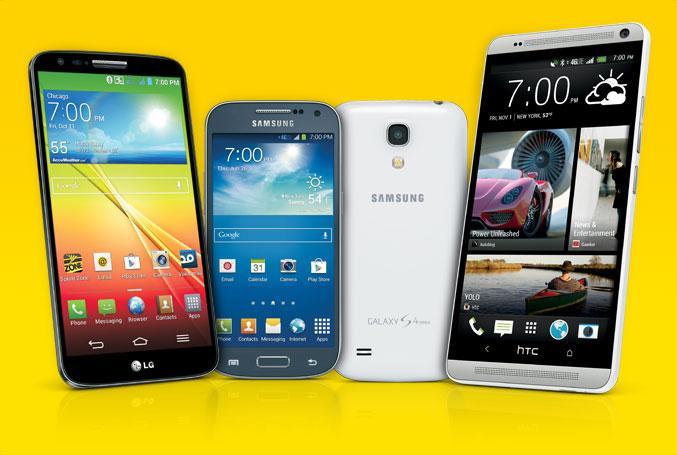
Hot on the heels of the news that Sprint's 4G LTE network is now live in 45 new markets across the country, the carrier today made another, even bigger LTE announcement. Sprint Spark is the name of the new network technology that Sprint describes as "enhanced LTE." Spark takes advantage of three different bands of LTE spectrum — 800MHz, 1.9GHz and 2.5GHz — in order to offer faster speeds and increased capacity to devices that support the technology.
Speaking of devices that support Spark, Sprint has also named the first batch of smartphones that will be able to take advantage of its tri-band tech. The LG G2 and Samsung Galaxy Mega will both arrive on Sprint shelves on Friday, Nov. 8, for $199.99 with a two-year contract. The G2 and Galaxy Mega will also be available through Sprint's One Up program for $22.92 per month and $19.52 per month, respectively. Also launching at Sprint on Nov. 8 is the Samsung Galaxy S 4 mini, which will be priced at $99.99 with a two-year contract and $50 mail-in rebate, or $16.67 per month through Sprint One Up.
Finally, Sprint also reiterated its plans to offer the HTC One max. Sprint hasn't yet divulged when it plans to launch the One max, saying only that the device is "coming soon," but the carrier did reveal today that HTC's new phablet will be priced at $249.99 with a two-year contract or $25 per month through Sprint One Up.
It's also worth noting that these new devices won't be tri-band enabled out of the box. Sprint says that the Galaxy Mega and Galaxy S 4 mini will be updated to support the Spark tri-band tech "shortly after launch," while the G2 will be updated in early 2014. Once they're updated, the phones will be able to actively hand-off between Sprint Spark's three LTE bands, providing a continuous stream of data while switching between bands.
Sprint Spark is launching today in New York, Los Angeles, Chicago, Tampa and Miami. Looking ahead, Hesse and Co. plan to roll the tri-band network tech out to around 100 of the largest cities in the U.S. over the next 3 years. Spark currently supports peak speeds of 50-60Mbps, but Sprint today held a demonstration in which it achieved lab speeds of 1Gbps. Sprint believes that, with its spectrum and technology, Spark could eventually achieve speeds of 2Gbps.
Via Sprint